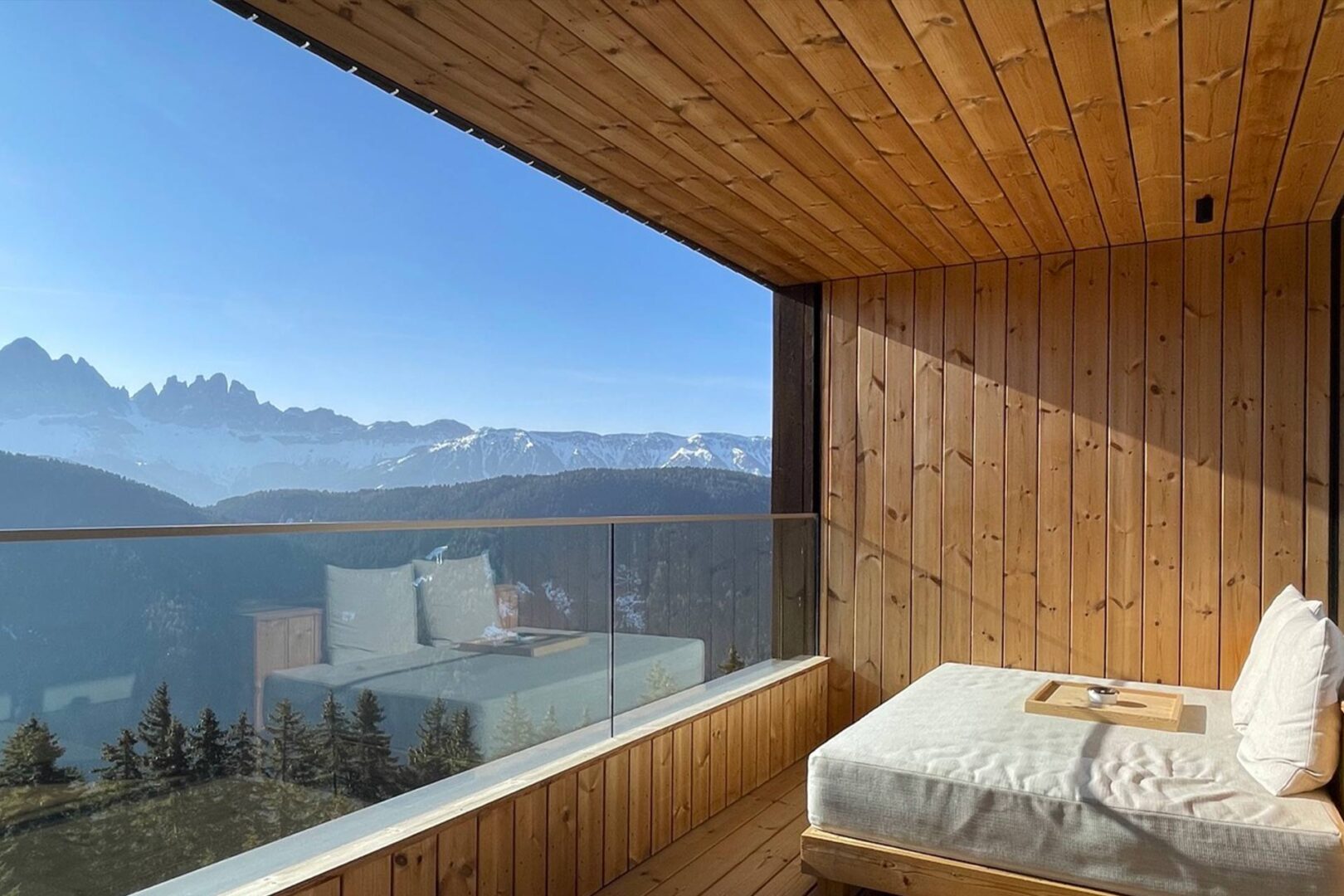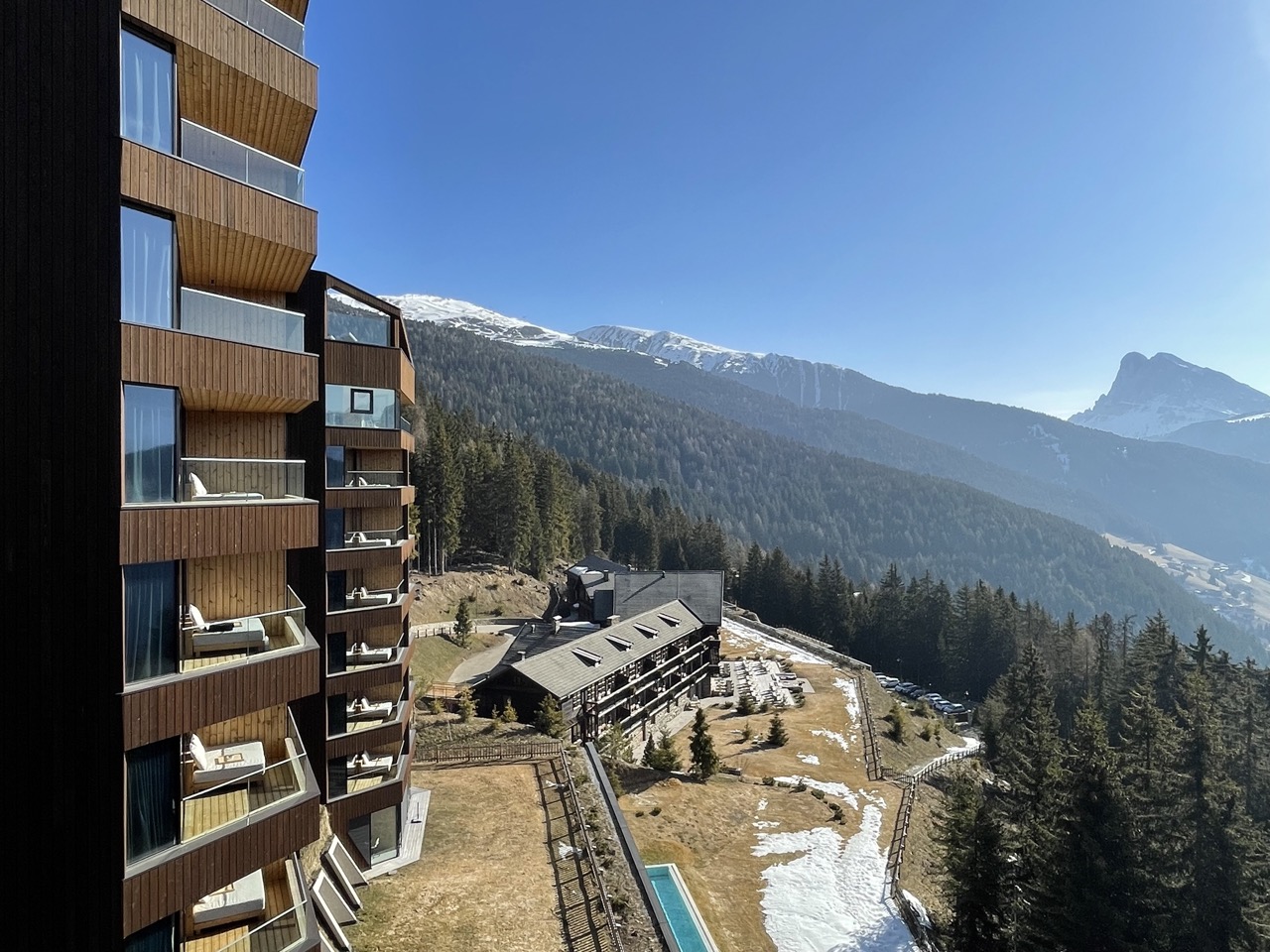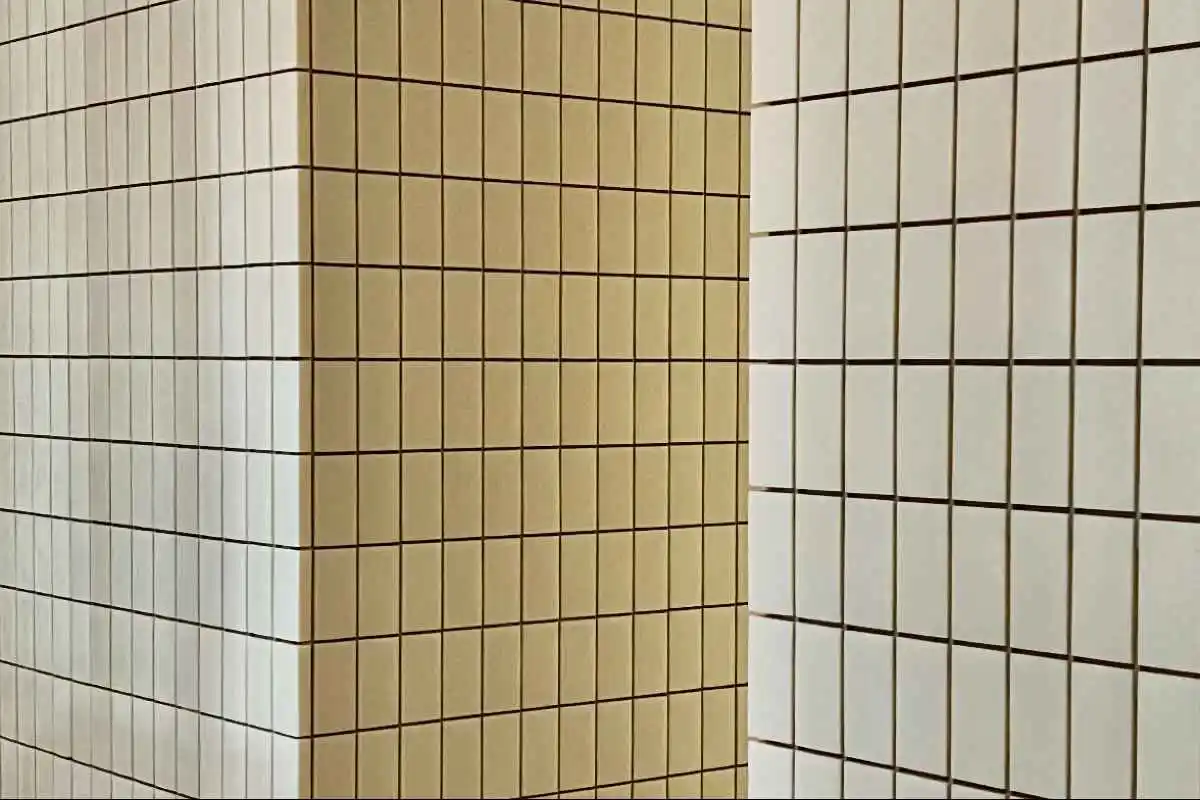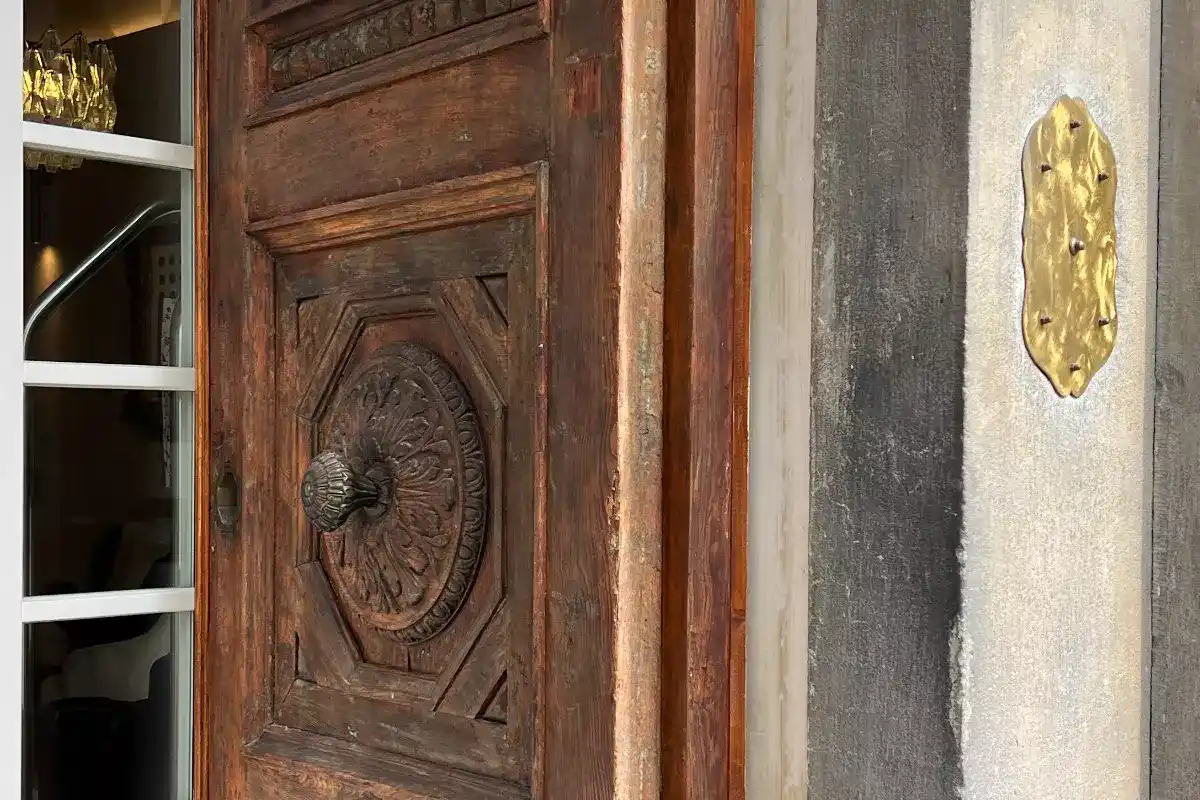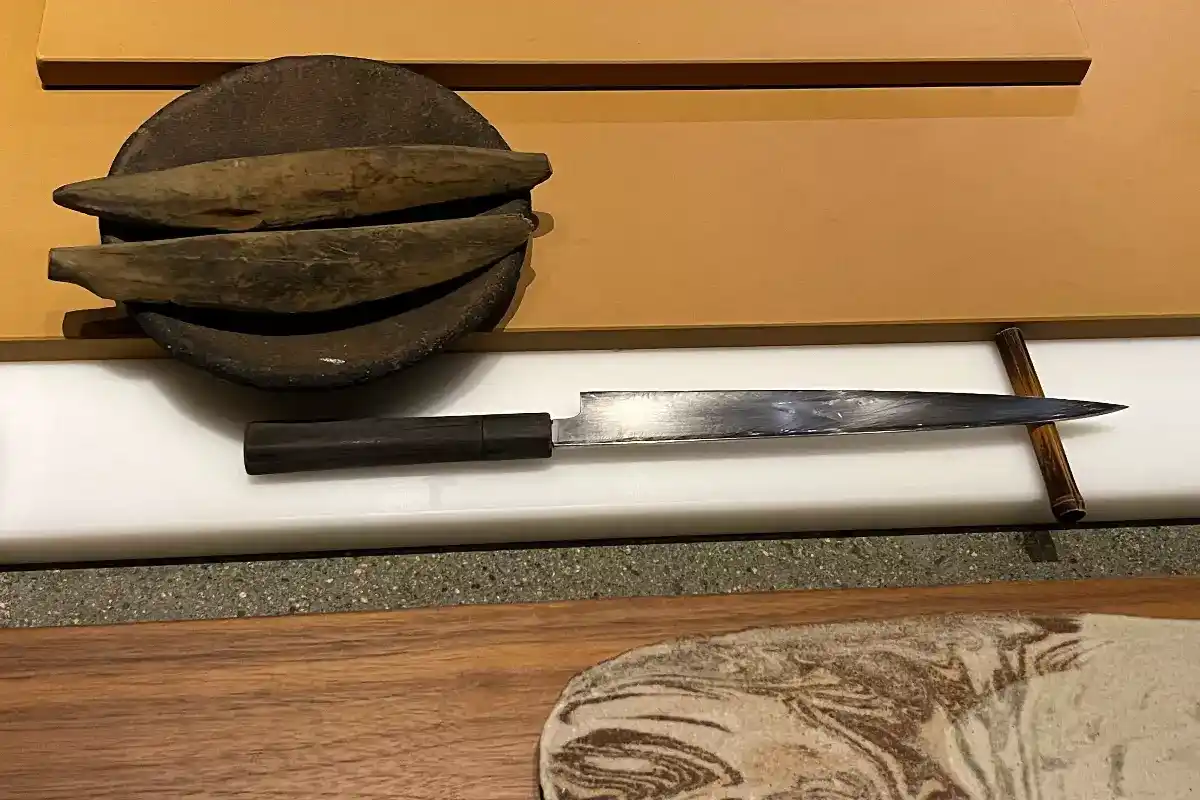Forestis collaborated with a heritage consultant from the region who provided the architects with respect for environmentally friendly construction. Sustainable hotellerie in the words of Teresa Unterthiner
Forestis – A x wellness spa and hotel in Brixen: design and nature on the Italian Dolomites
Forestis is located in the town of Brixen in the Italian Alps. The boutique hotel and wellness retreat is neighbor to The Dolomites, a mountain range that earned its UNESCO World Heritage status in 2009. With sixty-two rooms and a spa guided by Celtic wisdom, Forestis strives to be a place where time stands still.
It is a sustainable sanctuary built on the site of a former sanatorium. Hidden in the hills, only accessed by mountain pass roads, the hotel is set eleven miles from the nearest town, yet moments from the ski lifts belonging to the Plose mountain resort.
For its General Manager and Owner, Teresa Unterthiner, its connection with nature was its focal point from the beginning. «Nobody comes to our hotel to see Brixen or Bolzano. They come to be here at Forestis. We focus on nature as a key element. We do not have any artwork in the hotel or pictures on the walls. The real picture is outside – it is the Dolomites», says Unterthiner.
«Forestis is a sustainable hideaway to experience simplicity, nature, and time. All three components are big for us. You have the simplicity of design and nature. Then, it is time that we need when on a vacation; time for sleep or to find your rhythm. That is why we have long hours for breakfast, dinner, and our spa».
Connection with nature at Forestis hotel Brixen: between innovation and tradition, and respect for the land
Location has much to do with the brand’s ethos around quality, dedication to tradition, and respect for the land. «The province of Bolzano has a strong economy with a focus on tourism. Since the region is self-governing, the laws are made according to the needs of our area. There are people here with higher income than in other parts of Italy. Therefore, the inhabitants have a passion for tradition and quality».
This connection with nature runs deep, transcending offering and services, and permeating design and construction. «We developed the Forestis brand over many years. You do not create Forestis in one or two years; it took eight years», says Unterthiner. Stefan Hecht, Founder and Owner of substanz design in Munich, is responsible for the brand strategy. Thus, he is working in close collaboration with both owners and architects. The hotel as we know it today opened in 2020, although the history of the site far predates this.
Before Forestis Brixen: the takeover of the Hinteregger family and Teresa Hinteregger
First occupied by the Austro-Hungarian Monarchy in 1912, there was the belief that this secluded stretch of forest bore regenerative benefits which could revive the patients of their soon-to-be-built sanatorium. A combination of the Plose mountain water, Alpine air, and many days of sunshine were to provide the nectar for the recovering patients of Ploseberg.
War, however, squashed these plans. Therefore the half-built structure designed by architect Otto Wagner remained a haven until the 1950s for Popes and priests seeking respite – much like the patients for which it was originally intended. Eventually left dormant, the site was uncovered in more recent years by Alois Hinteregger, a native hotelier while enjoying the surrounding mountain trails. Although forgotten behind years of foliage, Hinteregger was able to see an opportunity at bay. Hence, he decided to bring his family on board to reinvigorate the property. Forestis is the fruits of much brand identity development and concept creation by Alois’s son, Stefan Hinteregger, and his partner, Teresa Unterthiner. The two now run the retreat.
At Forestis Bressanone, design sits within the natural landscape: the collaboration with architects for a conscious construction of the hotel
«In the design stage, it was essential to protect the forest and the surroundings. For that reason, we had tree experts who came to analyze the environment. The goal was to save the trees surrounding the Dolomites and the three towers [that make up the focal point of the property]», explains Unterthiner. The team worked with a heritage advisor from the region who provided a group of architects to support the development of Forestis with the goal of causing as little disruption to the landscape as possible.
The outcome of the planning process was the build high – not wide – following the orientation of the trees. This process was directed by Armin Sader of the architecture group ASAGGIO. The construction of the hotel combines the evolution of the previously constructed tower blocks on-site as well as fresh architectural blueprints.
«ASAGGIO redesigned the historic building; it is sensible and was not easy to do. It now connects to the towers via a glass tunnel that cannot be seen from outside». Finished using natural dark wood that has been sun-faded over time, the towers sink into their surroundings. Deliberately, the new design sits within the natural landscape, inobtrusive to the eye and resigned not to break the horizon.
Sustainability takes precedence: Forestis, the northern Italy hotel built according to low-impact architecture and locally sourced design materials
Adopting a sustainable, nature-first policy inside and out, the interiors of Forestis follow in a similar suit. «We mainly used wood in the hotel. We are surrounded by trees, so we used local wood. That is why the wood we use is matched with the interior design». An Alpine aroma formed from spruce, larch, stone, and mountain pine is found throughout the property and is one of the natural results of this aesthetic decision. Carpentry group, Frener, was commissioned.
Working with its Managing Director, Robert Eisenstecken and Master Carpenter, Albin Frener, the project encompassed everything from floors and ceilings to bowls and spoons. The team was responsible for renewing and repurposing old furniture, in addition. For its owners, Unterthiner and Hinteregger, the intent to furnish the entire property with this level of consideration was never a question.
The team worked with local craftspeople, such as Manuel Moling – a stonemason with unconventional coating techniques – and strived to be as low-impact as possible. The materials used at the hotel are locally sourced, and the hotel operates on sustainable power and energy. This is a commonality among properties in the region, explains Unterthiner. «When creating Forestis, sustainability was front and center. The property shows how we can live within nature. To power the property, we use wood pellets and green energy from the region. The region is fully sustainable, and locals use what they call ‘Alpine Energy’. This green energy is made up of water, wood, and wind».
Forestis Brixen: the use of green energy from the natural resources of Südtirol to power the hotel – the no-waste policy
The hotel’s sustainable efforts don’t stop there. A ‘no-housekeeping’ button in each room notifies staff that the guest is happy to do without fresh towels for the day which results in a tree being planted on their behalf. And, with a CO2-neutral construction and a no-waste policy in the kitchen, the brand is committed to continuing to evolve their sustainable policies.
As for the overall ambiance of Forestis, «The interior design connects with four elements: climate, air, sun, and water. Water connects with stone, sun with linen, glass with air, and wood with climate. There are just those four materials in our hotel. We wanted to give people real value. We wanted to keep the design minimal and clean; to free the mind of distraction; to detach people from Instagram and Facebook. This allows people to feel free. That is what we offer here at a Forestis. A chance to reconnect with nature, to focus on the body, and to focus on sleep», says Unterthiner.
Avoiding overstimulation was a conscious consideration when designing the hotel. The sole artwork on display is a fossil that is 130 million years old. «We want to show people how small they are and how big the Dolomites are, standing there for millions of years», explains Unterthiner.
This lack of overstimulation, however, does not deter people from finding connectivity. Each of its bedrooms offer panoramic views over the mountains, while the Penthouse Suite is complete with its own rooftop pool overlooking the Dolomites. Akin to the spa, the rooms are complete with Forestis’ range of bath products. Plant-based and born in South Tyrol, the line is rich in vitamins and minerals while featuring heavily in the four tree types seen throughout the hotel and the surrounding forest.
Plose mountain water flowing throughout Forestis with its geological beneficial properties
Water from Plose mountain plays a central role in daily practices at Forestis. «This water is found throughout the hotel. From the moment you arrive, the first thing you see is a water fountain. We serve Plose mountain water in the restaurant and at the spa. Everywhere in our hotel, the spring water flows. In Munich, they sell this water for €12 per bottle; here, you take a shower with it». The water here is light because of the geological composition of the Terre Rosse and surrounding mountains, says Unterthiner.
Whereas some traditional water brands would have more than a hundred milligrams of minerals inside them, Plose mountain water contains 22 milligrams of minerals. «In every part of the property, you can find this water: the pool, the showers, the rooms. It is cost-free because we say that it is a present from nature and we give this gift to our guests. We don’t want money for that».
The SPA at hotel Forestis Brixen
The spa, managed by Alessandra Tiengo, homes in on the regenerative qualities of the mountain water and fuses it with ancient Celtic practices to offer a series of bespoke treatments. «Our signature treatment is the tree circles ceremony [which draws on the presence of the trees that surround the hotel]».
Spanning 2,000 m² underneath the three towers, the spa is set over two floors. It includes indoor and outdoor pools, a brine bath, a Finnish sauna, a bio sauna, a textile sauna, and an outdoor sauna in a traditional South Tyrolean wooden house – all at various temperatures. A silent room where guests sit around a fireplace offers what the name implies, while a Tea Lounge serves signature blends.
Treatment rooms for private or couples’ experiences use only the brand’s signature face and body care line that draws on local ingredients. Relaxation rooms and a gym further expand the Forestis spa experience. Unique to this hotel, a Wyda area – dedicated to the Celtic form of yoga – is on-site with classes for residents. Forestis is the only hotel in Europe with such an offering.
Forestis, the restaurant: raw materials, local ingredients, and traditional recipes
Led by Executive Chef Roland Lamprecht, the kitchen at Forestis is an ode to the region, pairing the art of seasonally foraged ingredients, edible flowers, and native herbs from their own garden with traditional recipes. «Viticulture is very common in this region today. We have huge lands of vineyards. In the region, it is typical to see white wine, and it is mineral because of the stone. In the area of Bolzano, there has been quality wine since the 1980s».
Before this, according to Unterthiner, the region was not at the forefront of winemaking in Italy. However, a local, Alois Lageder, «motivated the winemakers to begin to deliver high-quality wine. He is now creating, with his son Clemens Lageder, a lot of biodynamic and sustainable wine products». With animals, such as cows, roaming free in the vineyards, says Unterthiner, they believe that the earth needs the nutrients to deliver the finest grapevines.
These wines are served at Forestis. Daily changing menus feature home-cooked jams, freshly baked bread, and produce native to the region procured from local providers, all of which are to be eaten in a dining room with floor-to-ceiling views over the UNESCO World Heritage Site.
The Rooftop Bar – the highest of its kind in the world – offers this same attention to the ingredients, with shrubs, berries, and nuts featuring heavily in rotation. And aside from the hotel’s offering itself, guests are encouraged to embrace the elements while staying at the resort. Set 1,800 meters above sea level, the wellness retreat is a hub for mountain spots year-round. From hiking and climbing to snow sports, the destination is coveted by those who prefer the great outdoors, as well as those who seek respite in the spa.
Forestis, Brixen
This chateau-style hotel in the woods of Plose mountain is 1 km from the Palmschoss trailhead, 18 km from Museo Diocesano Hofburg Brixen and 19 km from the Cathedral. Forestis Dolomites Hotel in Brixen offers a spa, yoga, and wellness packages.


